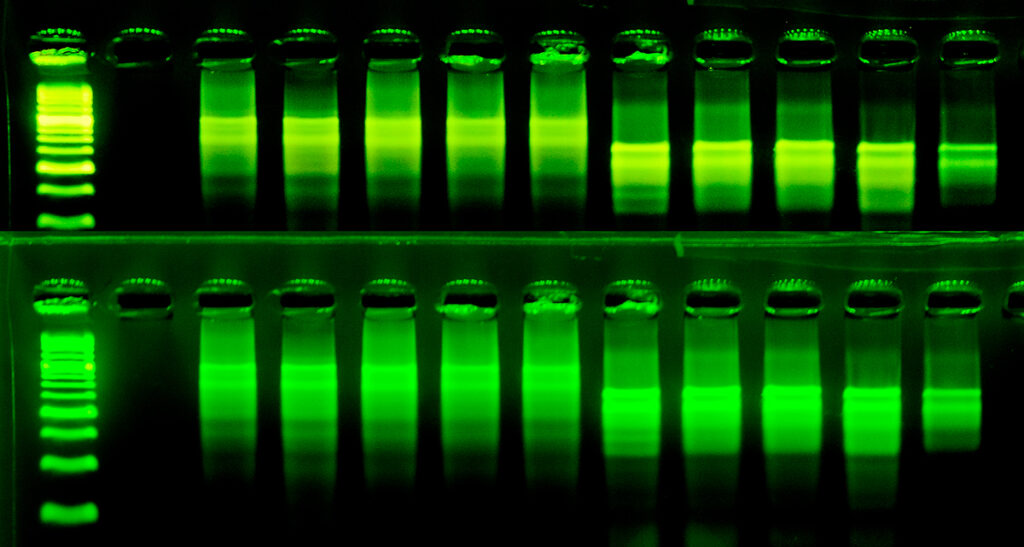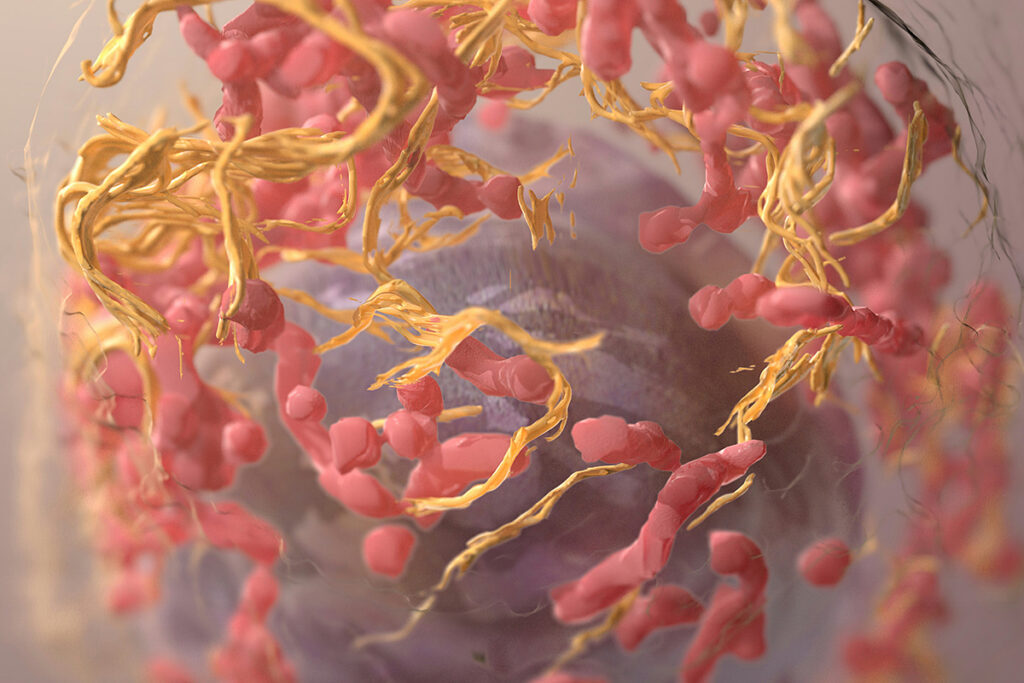A single injection of pegylated interferon-lambda (IFN) for coronavirus reduces the risk of hospitalization by 50% and death by 60%. It was announced by the American biopharmaceutical company Eiger BioPharmaceuticals, specializing in developing innovative treatments for the hepatitis delta virus and other serious diseases.
Eiger BioPharmaceuticals conducted a multicenter, randomized, double-blind, placebo-controlled study. The Phase 3 study included more than 1,900 non-hospitalized adult patients with COVID-19 at high risk of disease progression to severe disease. Risk factors for severe COVID-19 include age over 50, diabetes, hypertension, cardiovascular disease, lung disease, kidney disease, and obesity. 84% of patients received at least one dose of any COVID-19 vaccine. All patients had mild or moderate COVID-19 and entered the study within 7 days of symptom onset.
The results of the study showed that pegylated interferon-lambda in coronavirus:
- Reduced the risk of hospitalization or emergency room visits by 50% compared to placebo when treated within 7 days of symptom onset.
- Reduced the risk of hospitalizations by 42% when treated within 7 days and by 60% when treated within 3 days of symptom onset.
- Reduced the risk of death by 60%: 1 death in the IFN-lambda group (916 people) and 4 in the placebo group (1020 people).
- Reduced the likelihood of severe coronavirus of various strains, including Omicron.
- The frequency of side effects in the IFN-lambda and placebo groups was the same, mainly reactions at the injection site.
Pegylated Interferon-Lambda Reduces Inflammation
Interferon-lambda is a type III IFN that stimulates immune responses to protect against viruses. In clinical trials, IFN-lambda was well tolerated. The word “pegylation” means the addition of polyethylene glycol. Pegylation increases the time of action of interferon.
Interferon-lambda maintains a balanced antiviral response in the airways. The IFN-lambda response occurs before the type I IFN response, i.e. at a lower viral load. IFN-lambda is needed to limit the initial infection and make the cells more resistant to the virus.
Type I IFN receptors are expressed on almost all cell types, so IFN-I acts systemically, which increases the chance of side effects. Interferon-lambda receptors are located mainly on epithelial surfaces, particularly on the epithelium of the respiratory tract. Therefore, unlike type I IFN, interferon-lambda does not cause severe inflammation and has a tissue-protective and anti-inflammatory effect:
- Greek scientists have shown that the introduction of IFN-lambda inhibits viral replication and prevents cytokine storm.
- In a mouse study, intranasal interferon-lambda suppressed SARS-CoV-2 infection in the upper and lower respiratory tract and reduced coronavirus inflammation.
- In a human study, higher serum levels of IFN-lambda were associated with lower viral load in the respiratory tract and faster viral clearance. Moreover, a higher ratio of IFN-lambda to IFN-I was related to improved COVID-19 outcomes.
However, a randomized, placebo-controlled American study in 120 mild-to-moderate outpatients with COVID-19 showed that a single subcutaneous dose of pegylated interferon lambda-1a did not shorten the duration of SARS-CoV-2 virus shedding or improve symptoms, compared with the placebo group.
Conclusion
Interferon-lambda should be given as a single subcutaneous injection at the first sign of infection or after contact with an infected person. Subcutaneous infusion of IFN-lambda may help avoid severe coronavirus, leading to hospitalization and death.
Useful article, necessary information? Share it!
Someone will also find it useful and necessary:
Sources
- Eiger’s Single-dose Peginterferon Lambda for COVID-19 Reduced Risk of Hospitalization or ER Visits by 50% in a Predominantly Vaccinated Population in Phase 3 TOGETHER Study
- Interferon therapy shows striking results against COVID-19
- Peginterferon Lambda-1a for treatment of outpatients with uncomplicated COVID-19: a randomized placebo-controlled trial



